#some characters I imagine but most I tie to an actor that fits the description ldkfgjslkjg
Text
TV I Liked In 2019
Every year I reflect on the pop culture I enjoyed and put it in some sort of order.
The era of “peak TV” has never been more apparent to me than the past year. I am very aware of the many shows I have not seen (don’t have Amazon Prime, for example), and yet I expanded my list from a top 10 to top 15 and still had to leave out A LOT of stuff I really liked! These picks include my legitimate favorites, ranging from truly important looks at the criminal justice system to ensemble comedies that I couldn’t wait to return to. In another year I may have been able to include the latest seasons of Barry, Stranger Things, Queer Eye, Bojack Horseman, Glow, or the finale seasons of Legion, A Series of Unfortunate Events, Veep, Silicon Valley and The Deuce, all of which I’d still recommend. But these stood out even more.
14 (tie). Chernobyl (HBO) / The Hot Zone (National Geographic)
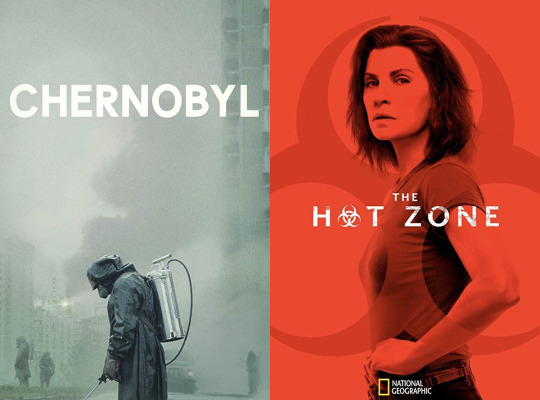
Two limited series focusing on real-life disasters in the 1980s: the meltdown of the Chernobyl nuclear power plant and an Ebola outbreak outside of Washington DC. Chernobyl is an incredibly harrowing account of humanity’s inability to believe things that don’t mesh with their interpretations of reality and the destructive power of lies and cover-ups. The Hot Zone adapts the non-fiction Richard Preston book, a revealing look at pandemics, the power of fear and human resolve. Taken together, they raise interesting questions about governmental gatekeeping, professional competence and personal sacrifice.
13. Mindhunter: Season 2 (Netflix)
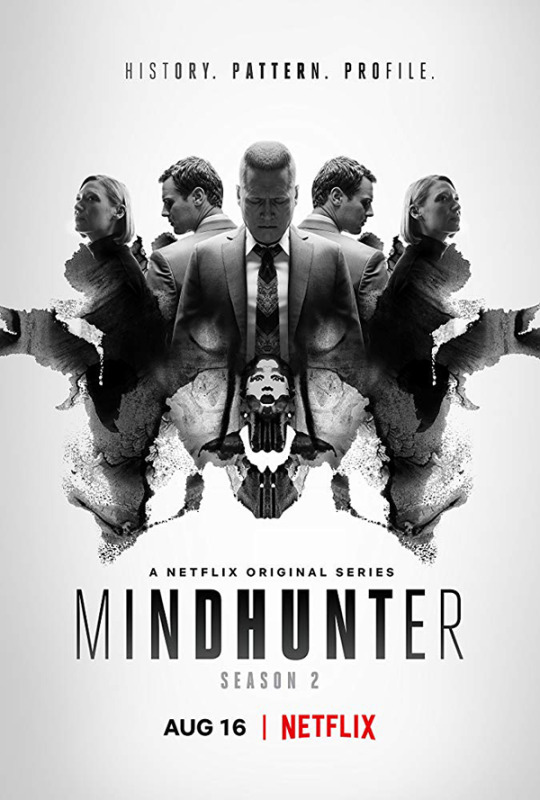
Joe Penhall and David Fincher’s look at the early days of the FBI’s criminal profiling department goes broader and deeper in its second season. There are still chilling interviews with incarcerated serial killers and criminal minds (including Charles Manson this time out), but the season really revolves around the Atlanta child murders. This focus provides a compelling look at who the justice system helps and who it ignores, and the investigative – and bureaucratic – work it takes to put together a case.
10 (tie). A.P. Bio: Season 2 (NBC) / The Last O.G.: Season 2 (TBS) / Schitt’s Creek: Season 5 (Pop)
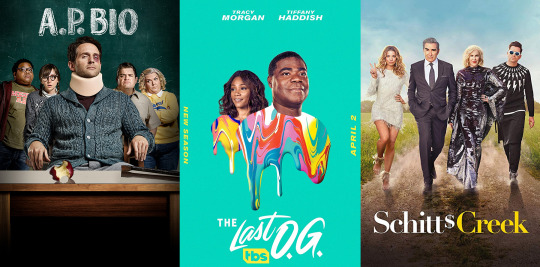
Three great hangout comedies that really came into their own in their most recent seasons. A.P. Bio transcended its first-season preoccupation with revenge and leaned into its fantastic supporting cast – one of the best comedic ensembles around – to become a show I loved spending time with each week. (Thank goodness it’s coming back via NBC’s upcoming “Peacock” service.) The Last O.G. has had a lot on its mind since it began, but its second season covers privilege and the opportunity gap among other issues, ending with a note-perfect homage to Spike Lee’s Do The Right Thing, making it an unexpectedly resonant comedy. Schitt’s Creek is obviously having a moment right now, and Season 5 (the first season I watched as it aired) was perhaps its best yet. While the whole cast is great, as a big fan of Best In Show and A Mighty Wind, I love seeing Eugene Levy and Catherine O’Hara share the screen again.
9. Crashing: Season 3 (HBO)
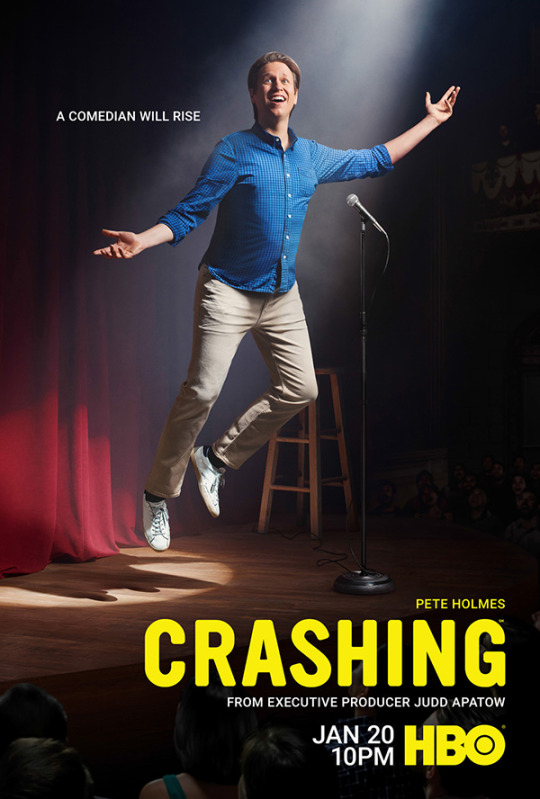
The first two seasons of Pete Holmes’ show made my list in previous years so I’d be remiss not to include the final one, which may be its finest. Pete spends the season making a lot of mistakes – saying yes to things (gigs, relationships) that he probably shouldn’t – and although they provide growth, he doesn’t come across as the “good guy” in how he deals with all of them. This adds additional nuance to the show, questioning its straight white male protagonist’s actions rather than merely rewarding him for following his passions, while still leading to an uplifting and fitting finale.
8. Unbreakable Kimmy Schmidt: Season 4 (Netflix)
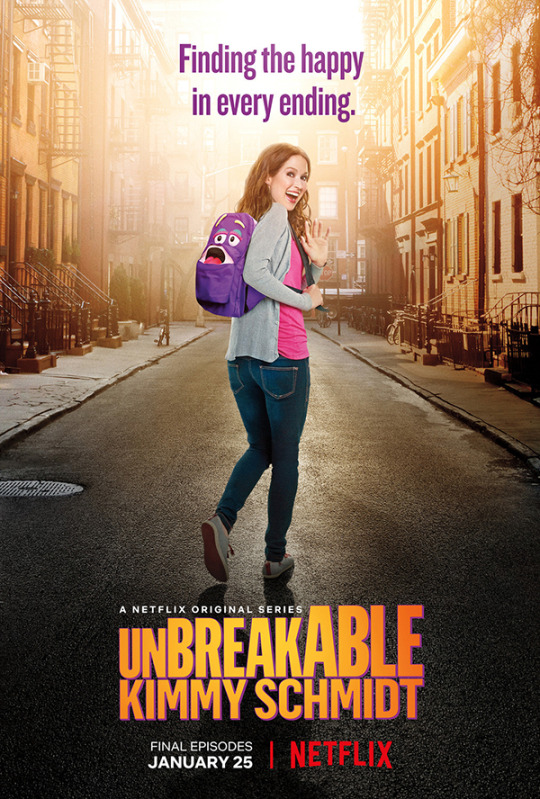
Netflix split the final season of Kimmy Schmidt into two parts, so technically only the final six episodes premiered in 2019. Those alone warrant a spot on the list, as the show concluded by following its idiosyncratic bliss to the end. The final group of episodes includes a (pre-movie) takedown of Cats, a Sliding Doors homage and an unexpectedly moving series finale. If this one fell off your radar a few years ago, it’s worth revisiting and seeing through.
7. What We Do In The Shadows: Season 1 (FX)

Based on the horror-comedy film of the same name, this series follows a different crew of vampires who live together on Staten Island. I was initially skeptical because I love the movie and couldn’t see how a television version could do anything but dilute its charms. On the contrary, the show broadens the universe in hilarious ways by introducing characters like “energy vampire” Colin Robinson and the incredible Vampiric Council (with so many incredible cameos!). The core actors are all wonderful, but the MVP has to be Matt Berry’s louche and libidinous Laszlo whose line readings are simply hysterical.
6. Les Misérables (BBC/PBS)
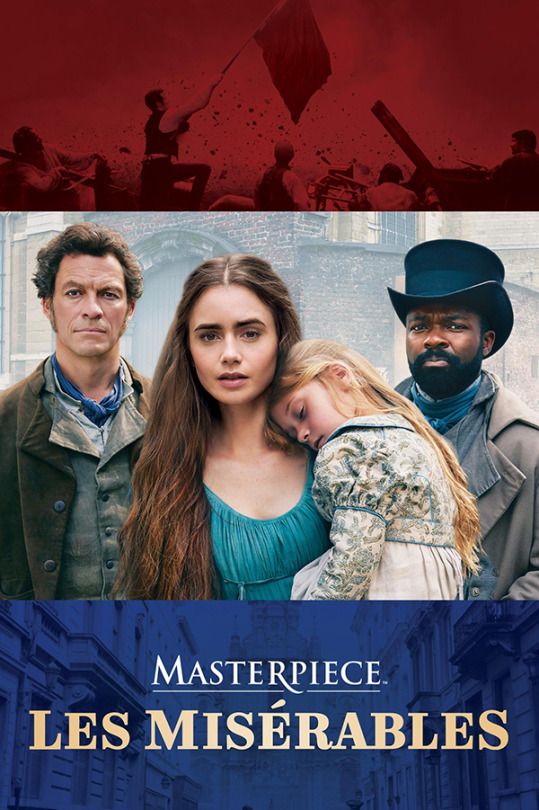
Although it aired in the UK in 2018, the BBC/PBS production of Victor Hugo’s epic didn’t grace American screens until early 2019 so I’m including it here. I am a big fan of the musical adaptation and find it quite successful at cramming so much story into a three-hour runtime, though it obviously has limits to how much of the source material it can explore. This (non-musical) adaptation’s six episodes allow for more of Hugo’s tale of forgiveness versus retribution to live and breathe. The terrific cast includes Dominic West as Jean Valjean and David Oyelowo as Inspector Javert, as well as Lily Collins as Fantine whose backstory is more fully realized here than the format of the stage show allows.
5. Our Planet (Netflix)
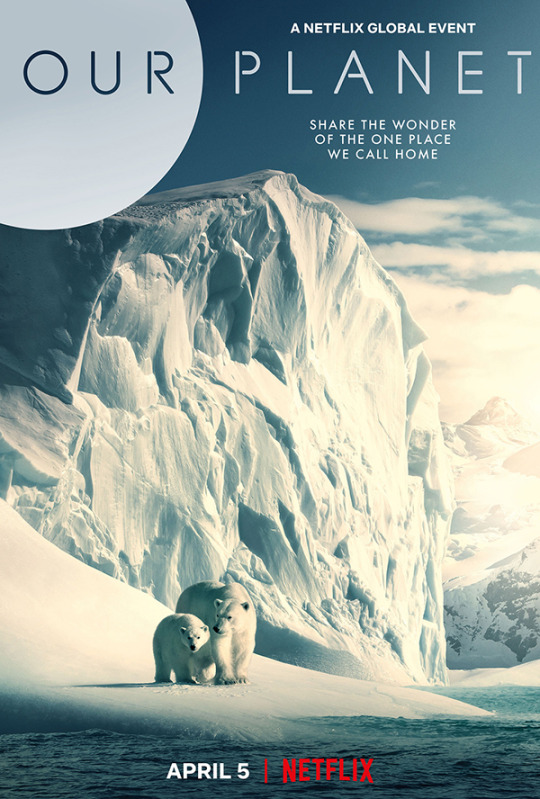
Essentially a sequel to the Planet Earth documentaries, with the same production team and David Attenborough narration, this Netflix series presents another stunning collection of nature footage that showcases the incredible diversity and beauty of animal life on Earth. Each episode includes a haunting reminder of man’s impact on the featured habitats and serves as a rallying cry in the fight against climate change.
4. The Good Place: Seasons 3-4 (NBC)
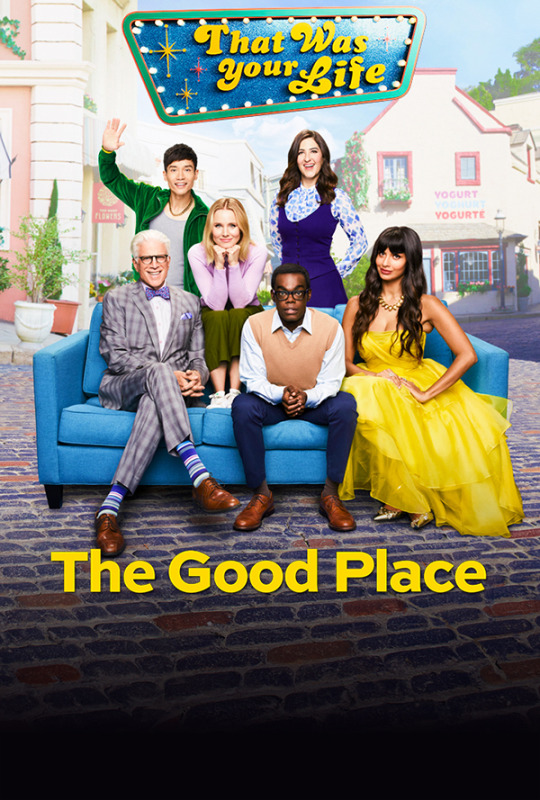
The Good Place has been high on my list since its first season and shows no signs of dropping in quality or esteem as it enters its final stretch of episodes. 2019 encompassed the end of Season 3 (including the hilariously imaginative visit to the Interdimensional Hole of Pancakes) and the beginning of Season 4 (with its crew of new characters and just as many reversals and rug-pulls as you’d expect). The final episode before its winter break was “The Answer,” a touching spotlight on William Matthew Harper’s Chidi, which might have been enough to make this list all on its own. (And given the surprise cameo/quasi-crossover in its first episode of 2020, I wouldn’t be surprised if it shows up here again next year too.)
3. Unbelievable (Netflix)
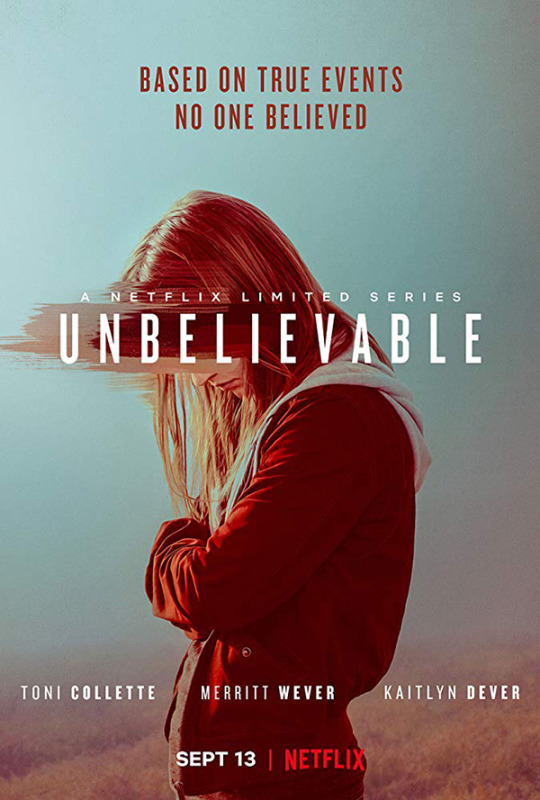
The true story of a serial rape case adapted from journalism by ProPublica, The Marshall Project and This American Life, Unbelievable is one of the most simultaneously heartbreaking and satisfying procedurals I have ever seen. As crushing as it is to watch the initial investigation completely mishandled and devolve to gaslighting, it is powerful and inspiring to watch compassionate public servants and actual good detective work be carried out as the series progresses. Kaitlyn Dever, Merritt Wever and Toni Collette are uniformly excellent here (as they also were in their respective film roles in Booksmart, Marriage Story and Knives Out this year).
2. Watchmen (HBO)
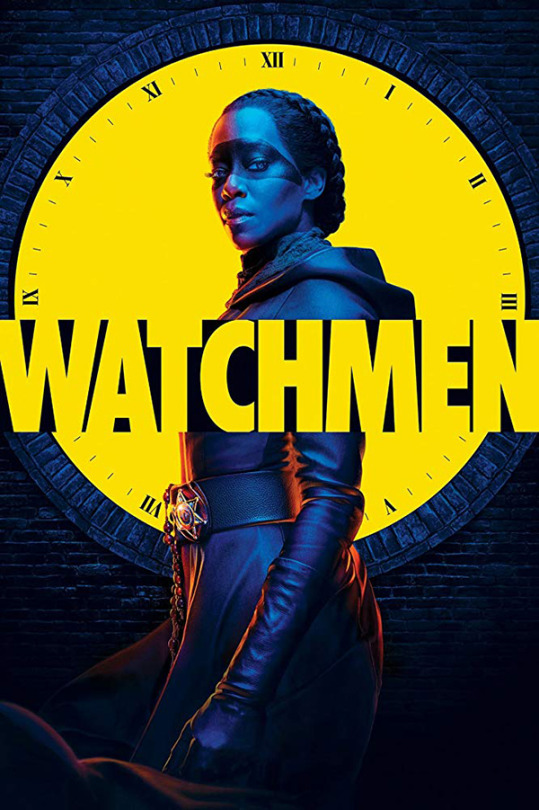
Showrunner Damon Lindelof (LOST, The Leftovers) takes some incredibly bold swings in his limited-run sequel to the groundbreaking 80s graphic novel that deconstructed the ideas of vigilantism and superheroics. Picking up in the same alternate reality as that story but in present day, the main action is shifted to Tulsa, Oklahoma, and the central theme is race relations. It could have gone way off the rails in a million different ways, but I found it to be incredibly successful. Each episode is a captivating work of art and it somehow seems to top itself with each subsequent installment. While I appreciate the book, I don’t love it; this series takes that source material seriously and, to me, completely transcends it.
1. When They See Us (Netflix)
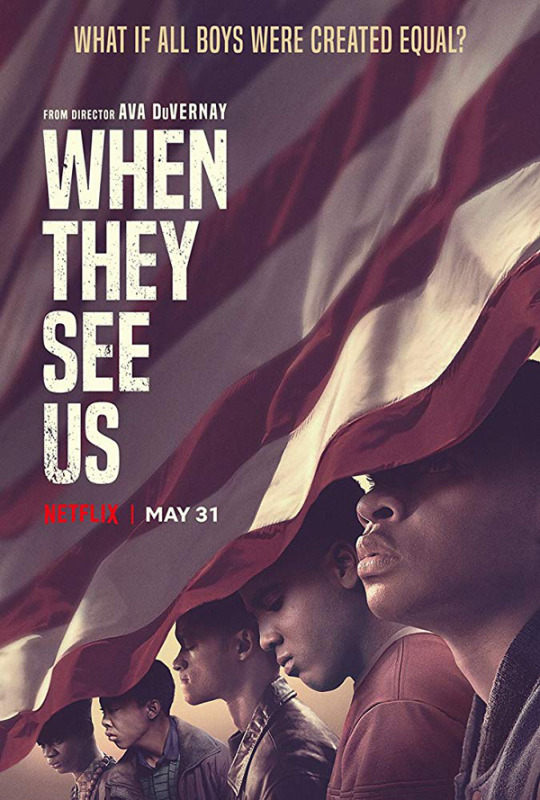
As compelling as it is devastating, this miniseries from Ava DuVernay (who directed and co-wrote all 4 parts) dramatizes the lives of the wrongly convicted children the media dubbed “the Central Park Five.” Even with some familiarity of the story from watching Ken Burns’ documentary years ago, I was utterly gutted by the depiction of the injustices and systemic racism that stole these childhoods. Everyone in the cast shines, but Jharrel Jerome’s portrayal of Korey Wise (the only one of the group played by the same actor as a child and adult – and so convincingly) is truly phenomenal. Not a comfortable watch but an essential one.
Bonus! Musical Comedy Specials:
The Unauthorized Bash Bros. Experience (Netflix) – This “visual poem” from the Lonely Island presents “an album of raps” recorded by Jose Canseco (Andy Samberg) and Mark McGwire (Akiva Schaffer) at their steroid-fueled 80s peak with the Oakland A’s. Your likely enjoyment is probably about equal to your reaction to that description. The songs are great, catchy and hysterical on their own, but the videos take it to another level, parodying everything from 80s infomercials to Enya to Beyonce’s Lemonade. There is no 30 minutes of TV I rewatched more in 2019.
John Mulaney and the Sack Lunch Bunch (Netflix) – Debuting on Christmas Eve, this children’s television homage/parody snuck in just under the wire. The words of the day could be fear and mortality, as the group of kids Mulaney interacts with reveal their personal phobias and several skits revolve around existential angst. By the end of the first musical number I was sold, by the time David Byrne showed up I was committed, and by “Mr. Music’s” madcap finale I wished it could last forever.
6 notes
·
View notes
Text
I saw a post about The Hunger Games movies earlier that I pretty much agreed with in terms of their hyper-representation of white people, their lack of attention to the culturally resonant implications of systemic and racist violence, and so on. Basically, it was praising the books and juxtaposing them with the movies as being vastly inferior products because they shaved off all the rough edges to create a much less complex narrative that focused more on the romantic relationship than the societal implications. And all that is well and good. I am waiting for my good Hunger Games Netflix or Hulu series well into old age. However, I just wanted to say something from my personal experience of The Hunger Games fandom to sort of counter this particular post politely without tacking onto someone else’s viewpoint in a rude way, which is why I’m making my own post.
I got into The Hunger Games back in very late 2011 because I had learned that Jennifer Lawrence was going to be in it. This was on the coattails of my being hyper-obsessed with X-Men: First Class, and this had been my first exposure to Jennifer Lawrence. My first exposure to the name of The Hunger Games series, on the other hand, were meme text posts that were going around when I first joined tumblr in 2011 that were joking about not knowing what “The Hunger Games” were or not having read them. Anyway, basically what happened was that I learned that Jennifer Lawrence was going to be in The Hunger Games movie, and I had enjoyed her in XMFC, and at the time I had a relationship with fandom where I might actually choose to follow and actor or actress’s body of work much more easily than I would now (in fact this is because of THG fandom).
Anyway, I picked up the book and read the back of it and became very excited about the fact that The Hunger Games was set in Appalachia. This was really exciting to me, and because of my own background in Appalachia I always read Katniss as Melungeon. There was a time, early in my experience in that fandom, when I would have died on that hill. Then I realized how sorely underrepresented indigenous peoples are, so while my brain still defaults to Melungeon, I am 100% in support of indigenous Katniss, too. I’m just sharing this for full disclosure, especially if anyone goes back in my THG tags which haven’t been active in a long while even though I still like the story itself in concept. Back to original point, I was excited about a heroine coming from my part of the world in a post-apcoalyptic setting because I tend to think of the south, particularly my part of it, as being kind of erased in fiction and so on.
By the time it became 2012, I had read the first book and was disappointingly convinced that Jennifer Lawrence was a poor casting choice for Katniss. I didn’t really have anyone better in mind off the top of my head, but cornfed, big-boned Jennifer Lawrence was more Glimmer than Katniss. However, I was still willing to watch the movie because i was so excited to have a movie of this thing I had come to love so much, and at the time the only things I knew about Jennifer Lawrence were things about how skilled she was for someone who was within a few months of my age. I was also excited about Josh Hutcherson as Peeta, which is still one of the only casting choices I’m happy with in retrospect.
The point of this post, however, is actually a little word of caution against giving the books too much credit because of their author Suzanne Collins. Now, this is not to say that she did not craft a story that is very meaningful to some people and that perhaps she did not execute her intent with more finesse in certain areas than she was consciously aware of. That happens sometimes, even incidentally. She might have even been aware of her intent and finesse while she was writing the books. That does not account for what happened during the casting and production of the first Hunger Games film, though.
I gobbled up anything I could get my hands on that was about the movie production, the casting, the cast itself, the process behind bringing these books to life. I still have several of the Scholastic tie-in books that I compulsively bought. I bought all the Capitol-based merch being fully aware of how creepy it was. I had a Hunger Games lanyard for years. I was so, so excited about everything. And as I mentioned, the downfall of The Hunger Games behind the scenes stuff and cast and so on in terms of my adoring-respect is one of the main reasons that I don’t actually follow the celebrity behind media I like for the most part now.
While I was doing this, I distinctly remember reading a magazine while walking through Walmart with my mother on a break from college. I cannot remember specifically what the title was except I think it was sort of a special publication, Hunger Games-specific magazine. I can’t quote it directly for you anymore. However, I want you all to be aware that Suzanne Collins actually got a lot more say in casting The Hunger Games movies than most book authors ever get.
In most cases, book authors sell the film rights to their books, and then they are as helpless and waiting with bated breath as the readers/fans of their books are. However, Gary Ross was kind of known as an odd, hands-on director. There are aspects of the unpolished aesthetic of the first film, particularly in District 12, that are far more fitting from the Asheville sets than from the Atlanta ones of the later films, and this is probably greatly owing to Ross’s ~directorial vision~. One of the main reasons they switched directors pretty much immediately after the first film’s success was because Ross wanted to work on a much longer time frame to get the other three movies “right” than the studio wanted to grant him on the coattails of commercial success and 20-something, aging actors playing teenagers.
Ross and Collins were both directly involved in helping with the casting direction. I remember very clearly reading that Collins said that she would have hired Josh Hutcherson to play Peeta had he been a purple dragon with six-foot wings or some description of this nature. Basically, she was saying that his “inner spirit” and understanding of the character was right to the point that it did not matter if he looked like Peeta, let alone even human, to play the role. Now, this might be a nice enough thing to say about Josh Hutcherson when there is absolutely no reason to believe that Peeta can’t be a white, blond boy. However, I think that it is really telling about Collins’s overall approach and attitude toward her allowed input on the casting of the films.
I am a white person. I have never been a published author, a director, or a casting director. Saying that, I think that the casting of The Hunger Games shows a very, very white attitude toward “color blindness” and mixed race people of color in particular. I just kind of want to bullet point a couple of things that I infer kind of must have gone on in Collins’ mind / that go on in some white authors’/creators’ minds unless they examine their own privilege and attitudes about race:
The Hunger Games books literally never once use a word that indicates a current, modern race or ethnic identification.
However, there does seem to be a fair amount of racial segregation between the districts with one or two ethnic or racial groups being typical of each one rather than a lot of diversity.
It was fanon in the pre-movie book fandom that Wiress and Beetee were probably of Southeast Asian appearance because Katniss observes that they have “ashen skin and black hair.” This itself might have been symptomatic of a racism or stereotyping either on the part of the fandom or the text because Beetee and Wiress are from the “technology district” (District 3). I wonder what stereotype that could be, hm. In the films, they are portrayed by a white woman and a black man respectively.
Cinna does not have any particular descriptions about his skin color that I recall. They cast Lenny Kravtiz and I liked this casting choice. However, if you go back and watch The Hunger Games films, you might notice that there is a conspicuous lack of any diversity beyond having white actors and black actors. It was good that they did cast black actors in a few notable roles, I have no doubt, but in my gut I always got this sense that it was a kind of “look at us, we’re being diverse!” rather than an actual attempt to reflect the diversity that was clearly suggested in the text.
Again, Collins said she would have hired Hutcherson had he been a purple dragon.
Collins also said that she had absolutely 0 doubts about Lawrence’s casting as Katniss. I believe that I did once read someone asking her about Katniss’s appearance being described as significantly different from Lawrence, and as I recall, Collins suggested that perhaps there simply were no actresses who looked the way she imagined Katniss to look while the casting call literally only called for white women.
Collins also said in an interview once that she based The Hunger Games concept on her emotional dissonance flipping between channels and finding things like American Idol on while there was coverage of the Iraq War on another station. I’m not saying it’s unfair to give her some credit for having compassion for the child survivors in war-torn areas. However, I might also suggest that anything she has said since about 2011-2012 about it might be kind of her building on a previous thought that she did not necessarily have before other people prompted her thinking. At the time, though, she was saying that it was very much a kind of not-very-thoroughly-researched reaction to popular culture and current events. Now, if she’s grown about it, that’s great, but I’m just saying in terms of this discussion of the movie vs. film quality and diversity thing.
From my understanding, Collins had little to do with the production of the films after the first, but Ross did call on her opinion and input frequently during all stages of the production of the first film.
All of this is getting around to me saying that I think there is a thing that some white people do to imagine a post-racial utopia (or even dystopia, in this case) where racial descriptions and ethnic divides have fallen by the wayside. It’s sort of horrifying, but The Hunger Games to me almost presents a scenario in which the spirit of it might be read to suggest that ethnic identity no longer really exists having been supplanted by District identity. In District 12, there are those who live in the Seam and those who are a part of the “small merchant class.” There are physical descriptions but never identifying words that we recognize. (Collins, as a note, played with this a lot; there was actually a glaring inconsistency where Katniss didn’t know what a monkey was called in one of the later books when she did in the first one, or something.)
Collins, in her public statements around the time she was having an influence on the direction and shape of the films-of-her-books, seemed to suggest that the people who lived in the Seam were the result of racial mixing of some form or another. She also seemed to suggest that they would not be identifiable by any term that we currently have. The Seam residents were imagined as the ultimate, isolated conclusion to a “melting pot” in which varied ethnic identification washed away which is one of the very specific reasons that I originally identified Katniss as a Melungeon in my personal reading. However, to Collins, it seems as if she imagines these post-ethnic people as something mythical and futuristic, like a future evolution of human beings or a fantasy creature like an elf (or a purple dragon!). Collins’s personal responses always read, to me, as being completely oblivious to the very idea that she had extrapolated that maybe someone like Katniss actually did exist in the very area which District 12 was supposedly based on to this very day and that this was not a once-and-future kind of reality that no longer existed in present-day America.
Tl;dr I really like The Hunger Games, and I hope I’m not stepping way out of my lane to talk about this as a white reader. However, I wanted to talk again after all this time about how yes, the movies erase a lot of the things that make the books meaningful (political and social implications, representation of diversity and disability and so on), but suggesting that the books innately present something a lot better and richer has a little to do with Collins. On the other hand, I suggest that there is a little bit of death of the author involved in your wonderful readings of this text because Collins herself seems to have directly refuted some of the nice things you might have to say about authorial intent in terms of diversity and representation.
#the hunger games#thg#representation#conventional blogging tag#long post#anti suzanne collins#just in case#racism
11 notes
·
View notes